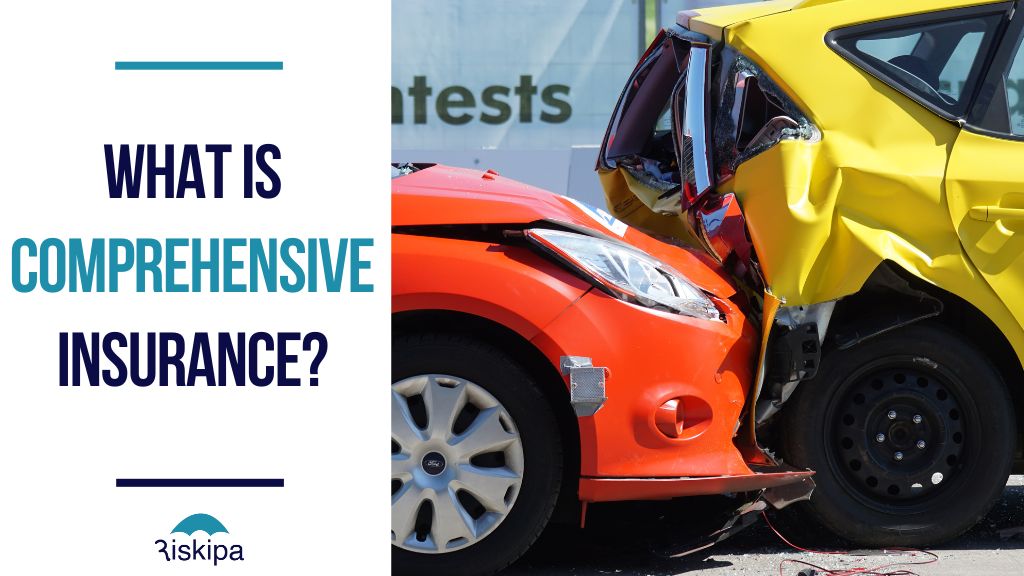
If you are wondering what comprehensive insurance is, congratulations, you are in the right place. In this post, we will explore the fundamentals of comprehensive insurance and how it works.
What Is Comprehensive Insurance?
Comprehensive insurance is a type of automobile insurance that gives coverage to a car so far the damages aren’t caused by a collision. This policy is also referred to as “other than collision” and it covers your vehicle if it is destroyed by non-collission related damages like a tornado slight deformation by a run-in deer, break-in, or damage by a collapsing garage, etc.
The three main components of an automobile insurance policy are comprehensive insurance, collision insurance, and liability insurance. Therefore, in most countries, the law demands all vehicle owners to take out liability insurance. Collision and comprehensive insurance are optional so long as the driver already owns a vehicle outright.
Note that if a person has financed the vehicle, the auto loan firm might require you to provide comprehensive insurance.
Read Also: What is Gap Insurance?
What Comprehensive Insurance Covers
The following are things comprehensive insurance covers:
- Contact with animals, such as hitting a deer
- Natural disasters, including earthquakes, floods, and hurricanes
- Fire
- Riots and vandalism
- Vehicle theft, or theft of certain parts of the vehicle
- Broken windshields
- Fallen objects, including branches, rocks, or hail
How Much is Comprehensive Insurance?
Comprehensive insurance takes care of damages done to your car owing to accidents and disasters beyond car accidents. However, the average cost of this policy can range from roughly $134 annually to nearly twice the price depending on some factors, such as the state you live in, your car make, model, etc.
Advantages and Disadvantages of Comprehensive Insurance
This policy offers financial security from events such as theft, natural accidents, and weather-related damage. This implies you won’t end up paying for unexpected expenses should a tree falls on your car or a thief steals an essential part of your vehicle like the catalytic converter.
On the downside, comprehensive insurance won’t pay for the damage caused when you are involved in an accident. Moreso, this insurance may be pricey if you are buying it along with collision insurance. If your vehicle is older and paid off, you might decide to save money by not taking out comprehensive coverage, especially if theft and weather-related havoc are not a thing in your place of residence.
How Does This Insurance Work?
Like other types of auto insurance, comprehensive coverage pays for a portion of the loss if your car is damaged. The vehicle owner will also take care of some part which is known as the deductible. Hence, you may decide to use the insurance payment for reparation or to purchase a new vehicle.
Read Also: Most Required Insurance Coverage for Young People Below 30 Years
Takeaways
- Comprehensive coverage protects you against theft, weather-related events, and other major things beyond your control.
- It gives coverage for unexpected events” like break-ins or broken windshield wipers due to hail (from thunderstorms).
- If you get a new car and live in a high-crime environment, this insurance will cover the damages caused by any break-ins or thefts.
- Note that comprehensive insurance doesn’t cover damage caused by a collision.
- This policy isn’t needed for an older car with high mileage.
- Comprehensive insurance doesn’t cover any material items stolen from your car.
- It also doesn’t cover damage as a result of potholes.
Editor’s Recommendations:









